Panel VI: We cannot expect our allies and partners to solve our problems
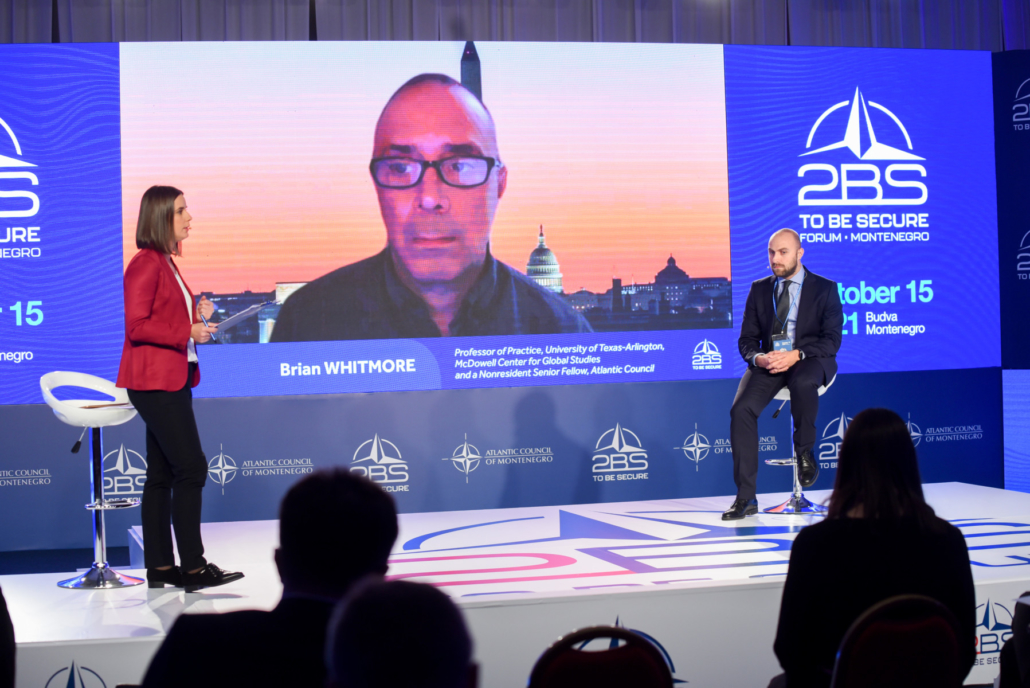
Disinformation is a part of a much larger ecosystem of the negative Russian influence and active measures that encompass a lot of different tools, including strategic corruption, that create a network of influences, organized crime that is an instrument of state administration for Russia, use of proxies and Trojan horses as well as the cyber-attacks, […]
Russia used a slowdown in the process of the EU enlargement and strengthened its influence in the Western Balkans
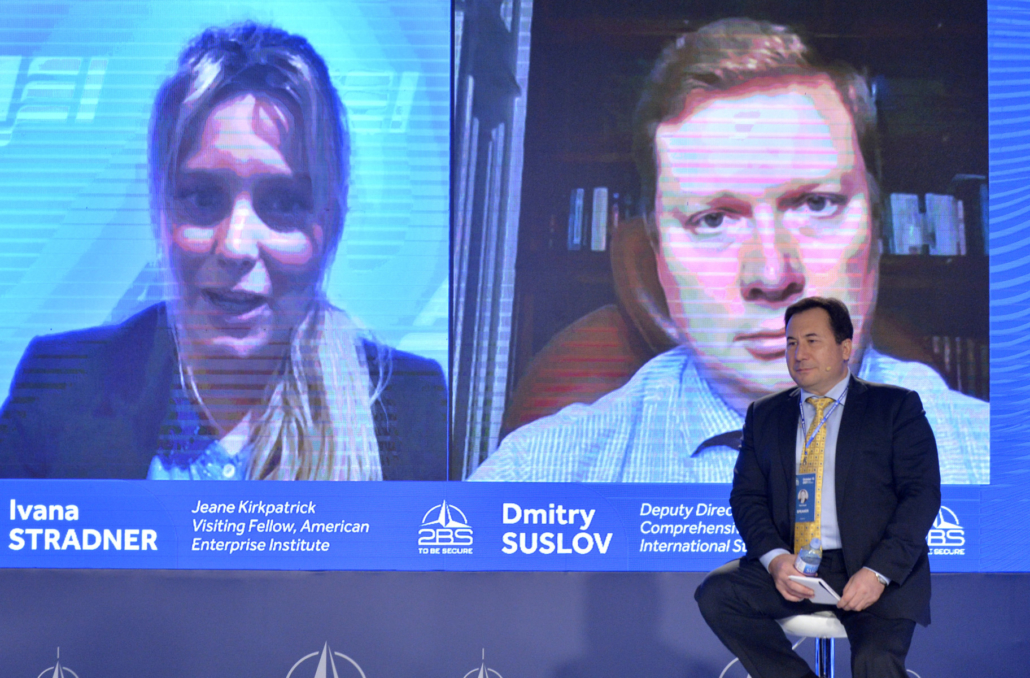
Russia is a global power and represents a huge threat for the West. It also seems that the West is not ready to confront this threat, said Ivana Stradner from the American Enterprise Institute while taking part in the 2BS Forum panel dedicated to the new international order and Russia’s role in it. Russia’s strategic […]
Increasingly stronger cooperation between China and Russia is a special challenge for transatlantic community
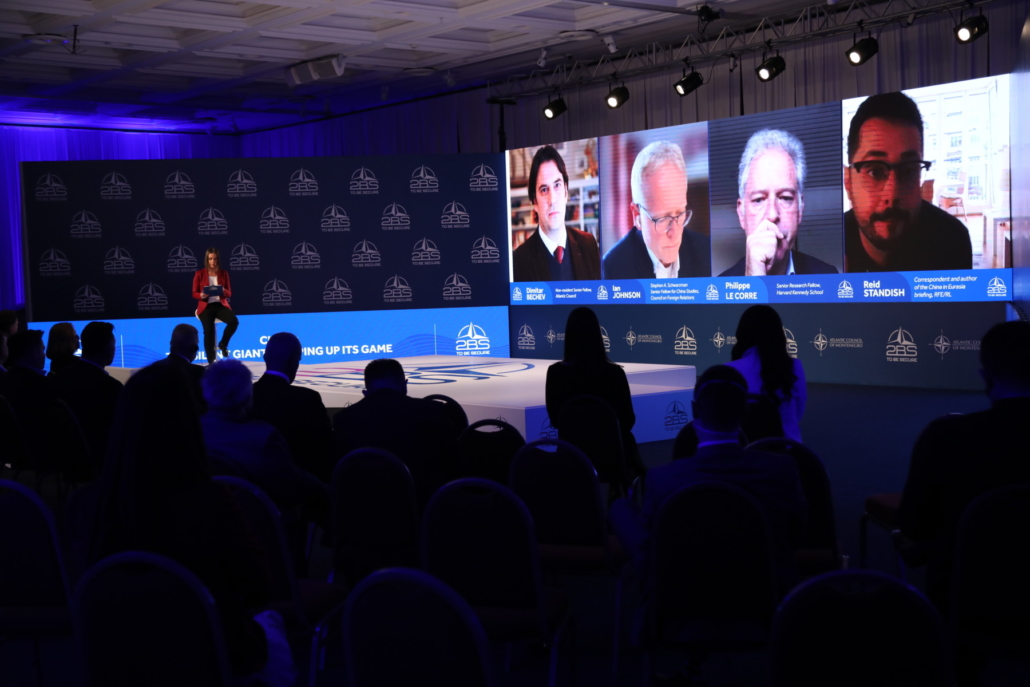
The biggest security challenge for the countries relating to China is the Chinese coupling of economic and security issues, said Ian Johnson, Senior Fellow from the Council on Foreign Relations.On the panel about China and Chinese influence, he emphasized that China became the second most important economy in the world and is successfully developing its […]
2BS FORUM ON OCTOBER 6-8, 2022
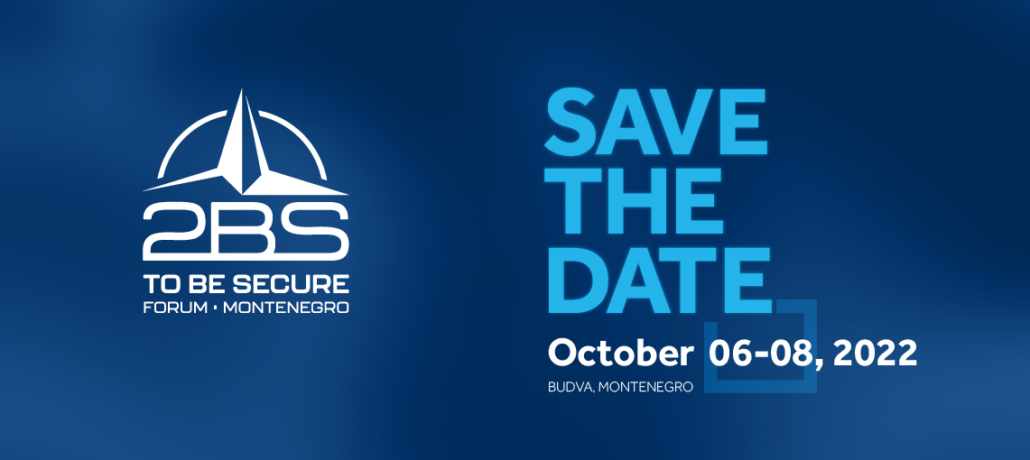
The 12th 2BS FORUM, one of the leading politico-security conferences in Southeast Europe, organized by the Atlantic Council of Montenegro, will take place on October 6-8, 2022.The forum will mark twelve years of its efforts to influence, change and shape new and tactical thinking and provide answers for regional and global burning challenges. The 2BS […]
Instead of America First, we now have international cooperation
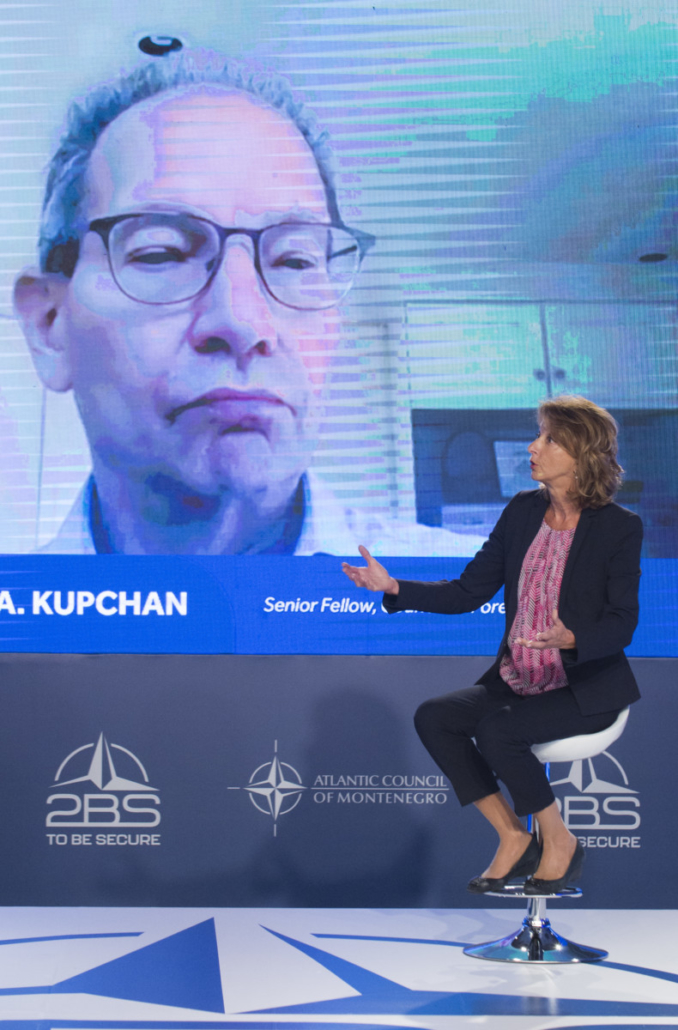
America has returned to the global scene as a liberal democracy dedicated to the rule of law, liberal democratic values, human rights, but it has also returned as a team player, said Charles Kupchan, a senior fellow at the Council on Foreign Relations (CFR). Speaking at a panel on America’s role in the new geopolitical […]
NATO must adopt a new dynamic and comprehensive approach when it comes to resilience
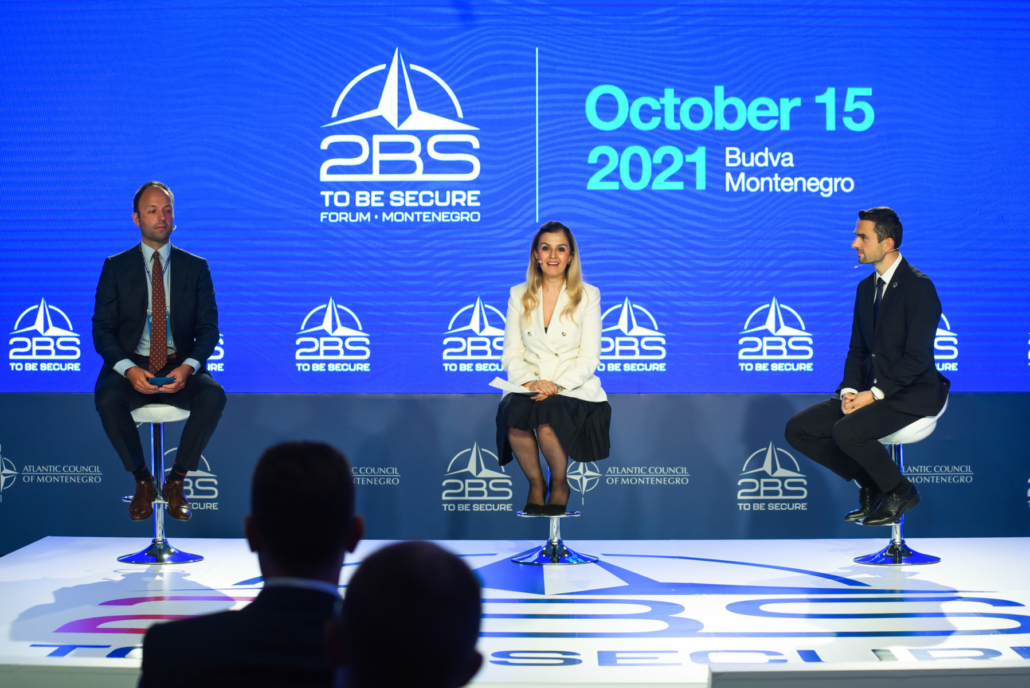
If you want to be a superpower, you need at least three things, a strong economy, a strong army, and strong diplomacy, said the Minister of Defense of Slovenia Matej Tonin at the 2BS Forum. The topic of the panel was NATO and the new security agenda. Tonin emphasized that the EU wants to be […]
The United States would respond diplomatically and politically in working to isolate those forces that really do not want a sovereign and democratic Montenegro
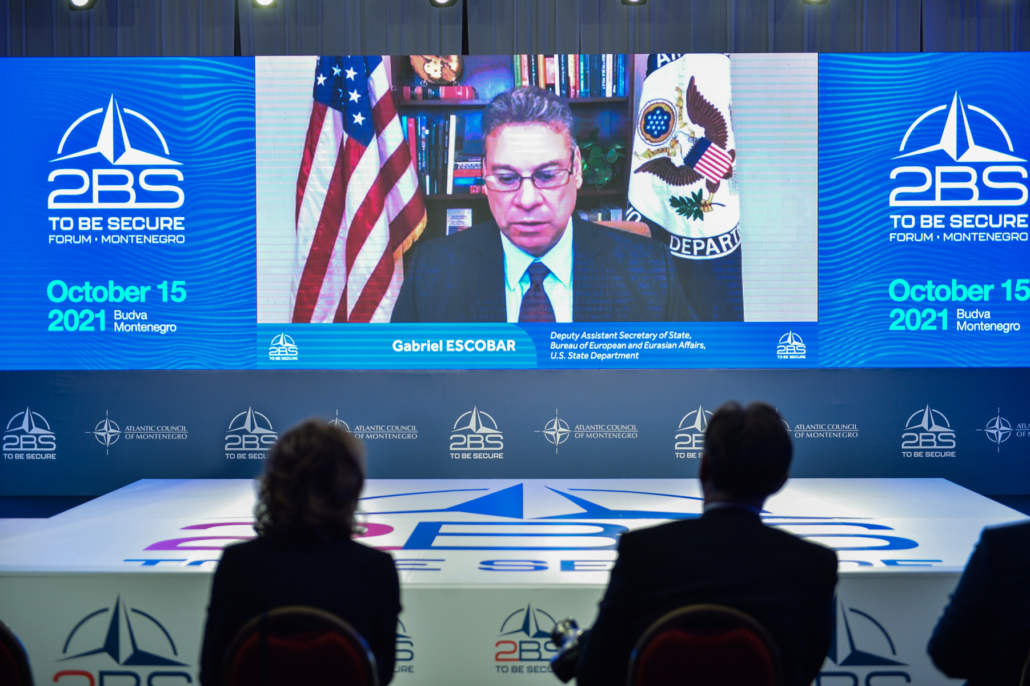
Deputy Assistant Secretary of the United States Gabriel Escobar said today that the current Montenegrin Government would have the U.S. support as long as it remained democratic and focused on its European future. Participating at the 11th 2BS Forum, Escobar said that the only solution to the tensions in the Balkans is a European membership […]
The Western Balkans region can count on NATO’s support in its Euro-Atlantic aspirations
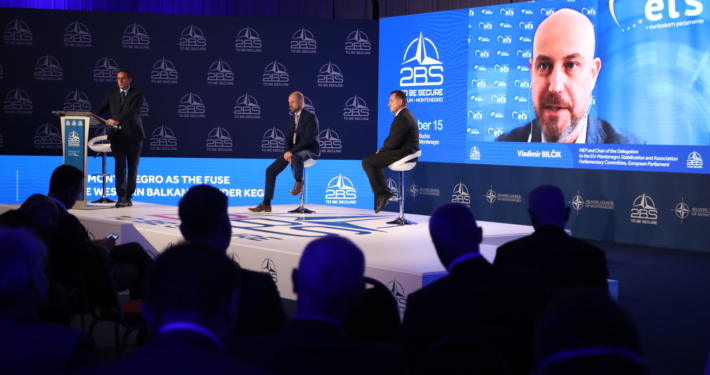
Montenegro is not far from the date of accession to the European Union (EU), said the rapporteur of the European Parliament for Montenegro, Vladimir Bilcik, adding that Montenegrin politicians should show that they are ready to endure reforms.It will not be a problem for Montenegro to enter the Union if it does everything it needs […]
Prime Minister Zdravko Krivokapic at the 2BS Forum
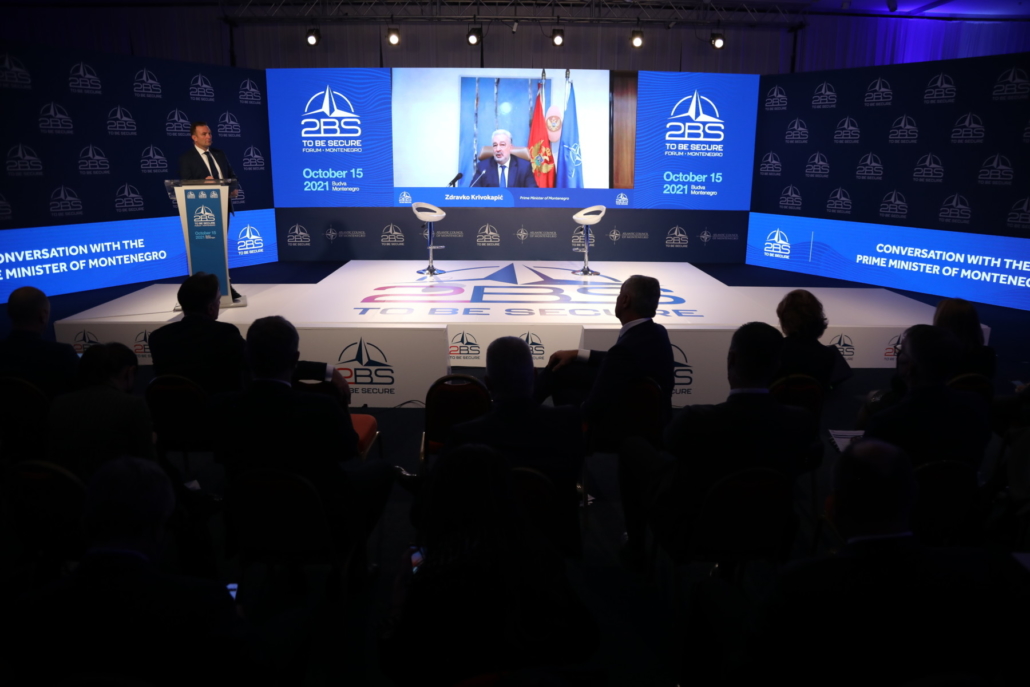
The Government will work on everything that was assessed as negative in the report and will try to eliminate the shortcomings to the satisfaction of all citizens, said the Prime Minister of Montenegro, Zdravko Krivokapic. The most important elements are in Chapters 23 and 24, and you state that the best results were recorded in […]
Western Balkan region can count on NATO’s help in its Euro-Atlantic aspirations
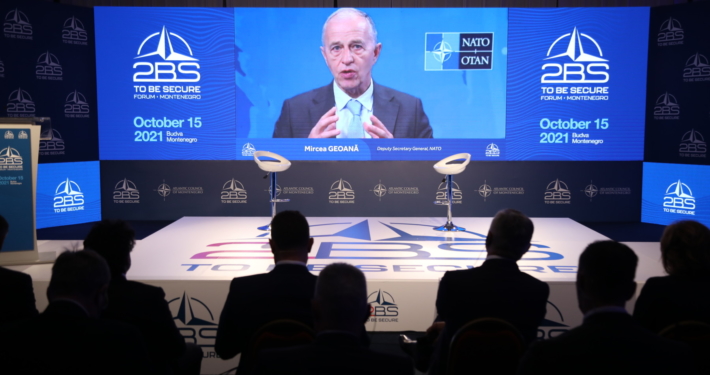
When it comes to the Western Balkan region, NATO policy, including the open-door policy, helps strengthen the stability and cooperation in the Western Balkans, said NATO Deputy Secretary General Mircea Geoană at the 11th 2BS Forum. In the introduction, he thanked the Atlantic Council of Montenegro and congratulated for 15 years of committed work on […]